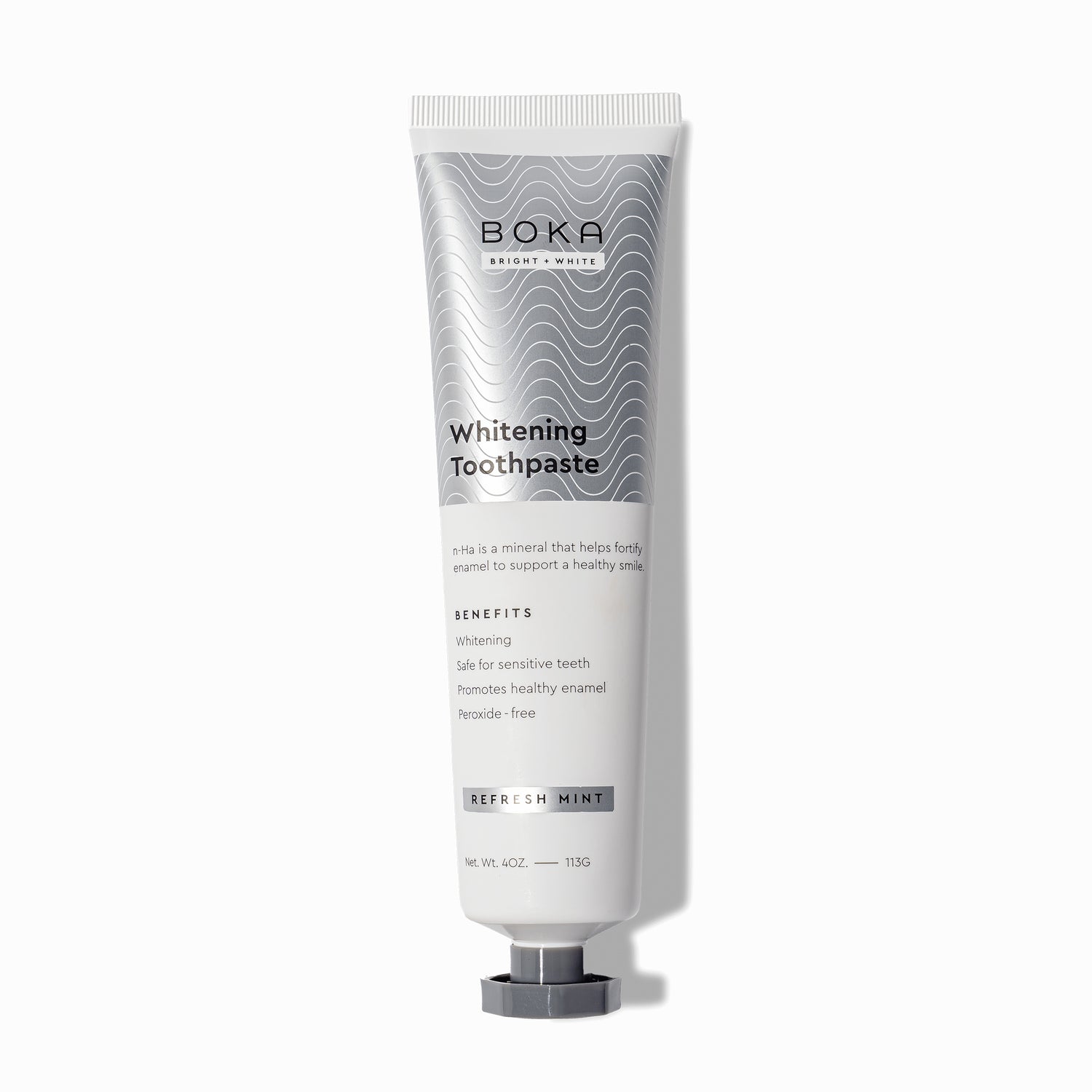Maintaining a bright, healthy smile goes beyond regular brushing and flossing.
The foods we eat can play a critical role in keeping our teeth enamel strong!
Enamel – the hardest substance in the human body – acts as the first line of defense against cavities and decay.
A diet that includes essential minerals like calcium and phosphorus is vital for supporting enamel health and overall dental wellness.
In this article, we’ll be exploring a variety of enamel-strengthening foods that can easily be incorporated into your diet.
We’ll discuss:
- Specific foods that strengthen enamel, such as dairy products, nuts, and leafy greens
- Strategies to integrate these foods into daily meals for optimal oral health
- Foods that you should avoid.
Let’s get into it!
Foods That Strengthen Enamel
Maintaining strong tooth enamel is essential for oral health. Certain foods can help to rebuild and fortify enamel, contributing to a healthier smile!
In this section, we’ll explore a few of the food groups (and specific foods) that can help to boost your enamel:
Dairy Products
Dairy items are a powerhouse of calcium, which is essential for strengthening tooth enamel. Vitamin D, found in dairy products, helps to strengthen bones. Additionally, keep in mind that the same material that makes up your teeth is also used to make your bone.
Including cheese, milk, and yogurt in your diet can provide the calcium and phosphates you need for optimal oral health!
For instance, a slice of cheese after meals can neutralize mouth acid, and a cup of milk provides about 300 mg of calcium – around one third of your daily recommended intake.
Leafy Greens
Leafy greens such as kale and spinach are loaded with minerals like calcium which is beneficial for teeth enamel. Iron, folic acid, and vitamins A, B and C are abundant in spinach and other green leafy vegetables, and they all contribute to strong teeth.
They also contain folic acid, a type of B vitamin that can support oral health! Adding one cup of raw leafy greens into a daily diet can contribute significantly to enamel strength.
Crunchy Fruits and Vegetables
Chewing crunchy fruits and vegetables such as apples and carrots can help clean teeth and massage gums.
These increase saliva flow which protects enamel by buffering acids. Eating just one medium apple provides plenty of fiber and stimulates gum health!
Fish and Shellfish
Fish like salmon and shellfish like oysters are high in phosphorus – a critical mineral for enamel remineralization.
For example, 3 ounces of cooked salmon can supply nearly half the daily recommended amount of phosphorus!
Beans and Legumes
Beans and legumes such as black beans and lentils are not only high in fiber but also have phosphorus which supports enamel health.
Incorporating 1/2 cup of cooked beans several times a week can enhance the diet with these protective nutrients.
Nuts and Seeds
Almonds, sesame seeds, and other nuts and seeds are excellent sources of calcium and phosphorus.
Snacking on a quarter cup of almonds provides substantial nutrients to fortify tooth enamel.
High phosphorus content in seeds and nuts—like Brazil nuts and sunflower seeds—helps create strong bones and teeth. Just remember to gently floss after consuming a large amount of seeds!
Tea and Coffee
Because green tea is high in antioxidants, it can help maintain a healthy balance of oral microorganisms, keeping enamel intact. Just don't put sugar in your green tea!
Unsweetened black coffee has been found in certain recent dental research to help prevent plaque buildup and shield tooth enamel. Though it's excellent for your teeth, it might not be the best for maintaining their brightness and freshness.
Foods to Avoid
When it comes to maintaining strong enamel and overall dental health, some foods can be highly detrimental.
It’s important to consume these items only in moderation or to avoid them in order to safeguard your teeth’s enamel.
Sugary Snacks and Beverages
Sugary treats are notorious for their role in tooth decay.
Bacteria in the mouth thrive on sugar, producing acids that wear away enamel. Candies, pastries, and sodas are especially harmful because they cling to teeth and prolong acid production!
-
Soda: Both sugar-laden and diet varieties can erode enamel
-
Hard Candies: Not only are they full of sugar, but they can also trigger dental emergencies like a broken tooth
-
Chewy Sweets: Sticky candies like caramel can adhere to teeth for longer periods, increasing the risk of decay.
- Bread: Saliva converts starches in bread into sugar when chewing. The bread adheres to the spaces between teeth when it turns into a sticky paste in your mouth. Cavities may result from that.
Acidic Foods and Drinks
Acidic items can weaken enamel, making teeth more susceptible to decay. Even healthy foods can be high in acidity, so moderation is key:
-
Citrus Fruits: Oranges and lemons are high in acid which can wear away enamel over time
-
Wine: Both red and white wines have erosive acid content
- Tomatoes: Common in many diets, the acidity of tomatoes can be harmful to enamel when eaten in excess.
Hard Foods
Some foods are damaging due to their physical nature. Biting down on overly hard foods can crack or chip enamel:
-
Popcorn Kernels: Unpopped kernels pose a significant risk to teeth
- Ice: Chewing on ice can create microfractures in enamel.
Reducing the consumption of these foods and drinks can help individuals preserve their enamel, leading to healthier teeth and a brighter smile!
Tips for Improving Enamel Strength
Maintaining strong tooth enamel is vital for your oral health.
While enamel is incredibly durable, it isn't invincible! Here are a few tips that can help bolster enamel strength for a healthier smile:
-
Restrict Acidic Foods and Beverages: Minimize exposure to acidic substances like soda and citrus fruits that can erode enamel over time
-
Chew Sugar-Free Gum: Chewing sugar-free gum stimulates saliva production, which naturally helps to remineralize teeth enamel
-
Stay Hydrated with Water: Water not only washes away food particles and acids but also supports saliva production – a key element in strengthening enamel
-
Adopt a Balanced Diet: Foods high in calcium and phosphorus, such as dairy products and leafy greens, are essential for enamel remineralization
-
Brush with Boka's Enamel-Supporting n-Ha Toothpaste: Boka's Ela Mint Toothpaste contains nano-hydroxyapatite (n-Ha), a naturally occurring mineral proven to support enamel repair and provide gentle whitening without the need for harsh chemicals!
- Regular Dental Checkups: Frequent visits to the dentist can catch potential issues early and provide professional advice on enamel care.
By incorporating these habits into your oral care routine, you’ll be able to significantly improve their enamel strength and overall dental health!


